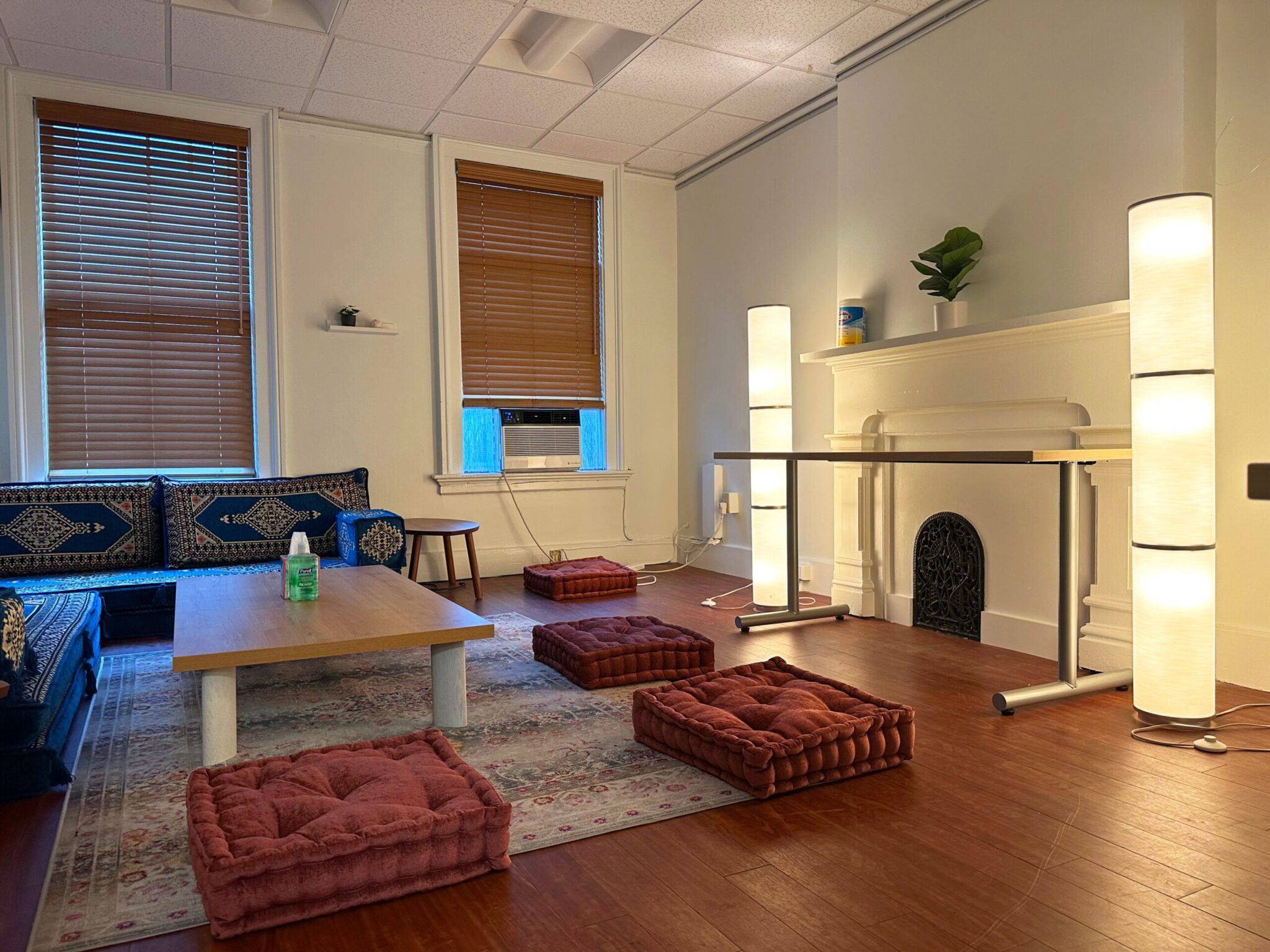Administration preps for creation of new space for Middle Eastern and North African students
After University President Peter Salovey promised the creation of a MENA space in December, administrators told the News that MENA students will have dedicated spaces, peer liaisons and an assistant director hired by the fall semester.

Yolanda Wang, Contributing Photographer
In December, University President Peter Salovey promised a “more plentiful and fully dedicated space” for Middle Eastern and North African students — the lack of which has long been a source of student outcry.
Following the models of the current four cultural houses — the Afro-American Cultural Center, the Asian American Cultural Center, the Native American Cultural Center and La Casa Cultural — MENA students will have its own dedicated space, peer liaisons and an assistant director, per Senior Associate Dean of Strategic Initiatives and Communications Paul McKinley.
Salovey’s public commitment to establish a MENA space is the culmination of Yale College Council lobbying and student group organizing, dating back to at least 2018. In the spring of 2022, the AACC dedicated a room on its third floor to MENA students, which since has hosted affiliated student organizations, such as the MENA Students Association, Arab Students Association, Persian Students at Yale and Yale Armenian Network.
In September, the inaugural AACC-MENA peer liaisons spoke with the News about the difficulty of keeping track of the racial demographics and identifying their PLees. McKinley wrote that the new space will have its own peer liaisons, independent of the AACC.
Following Salovey’s announcement, AACC Dean Joliana Yee was put in charge of a search this month for the MENA Assistant Director in preparation for hiring someone in time for the upcoming fall semester, according to a written statement by McKinley. Furthermore, McKinley told the News that Yee has already reached out to the current AACC-MENA peer liaisons for input on qualities for the candidate.
“Since starting my tenure at Yale in 2018, the AACC and the other cultural centers have always been supportive of MENA-identified students in their efforts to have increased programming and resources to celebrate their distinct cultures and histories,” Yee wrote to the News.
Zahra Yarali ’24, co-head AACC Peer Liaison and the first MENA-identifying PL at the AACC, also expressed appreciation for Yee’s efforts to incorporate students’ opinions in the process.
Yarali wrote that Yee asked for her general input when drafting the job description.
“That’s one way I appreciated how intentional she’s being about including students throughout the hiring process,” Yarali said.
Although unable to provide any prospective addresses of a potential MENA cultural space, McKinley, wrote to the News that they “expect to have a suite of rooms for the MENA space not far from the AACC,” which will “replace the existing space in the AACC and provide additional functions such as a kitchen.”
In order to fund this space, McKinley added that a current priority is determining the size of Yale College’s MENA community. However, because of the limitations of the United States Census — which only has options for “white,” “Black,” “American Indian or Alaska Native,” “Asian” and “Native Hawaiian or other Pacific Islander” — students have not had any opportunity to identify as MENA formally in the University’s system, and the admissions office and Student Information Services do not recognize MENA status. As a result, McKinley wrote to the News that the YCDO will be working with student groups to help identify students across the broad range of countries and cultural and socio-religious identities that the MENA label includes.
This problem of not being able to formally track MENA students has proven difficult for the AACC-MENA peer liaisons, who did not have an official way of identifying their potential PLees at the beginning of the year, unlike other cultural centers, who receive lists of their potential students.
Similar to the AACC, the Af-Am House has also affiliated with and provided support for various MENA student organizations, such as the Arab Student Association and Yale Muslim Students Association. In response to Salovey’s announcement of the MENA space, Af-Am House Dean Timeica Bethel told the News that she imagines that The Af-Am House’s involvement with MENA communities will continue.
“I envision the House collaborating on programming and events with the MENA cultural house, just as we do with the other cultural centers and affinity spaces on campus,” Bethel wrote to the News.
Salovey’s announcement creating the new MENA space came amid student concerns about safety amid the Israel-Hamas war in Gaza and the resulting campus tensions.
Palestinian and Muslim students expressed safety concerns following the shooting of three Palestinian students in Vermont. Concerns also grew in October when messages declaring “Death to Palestine” were written on a Grace Hopper College whiteboard, and in November when at least 15 students had their personal information displayed on “doxxing trucks” that drove through New Haven.
On Oct. 7, Hamas launched a surprise attack against Israel, killing 1,200 people and taking more than 250 hostages, according to Israel’s Foreign Ministry. Israel then launched a full military offensive in Gaza, and as of Jan. 26, has killed at least 26,000 Palestinians in Gaza, according to the Gazan Health Ministry.
Also in Salovey’s December announcement, titled “Against Hatred,” were steps to combat antisemitism and Islamophobia on Yale’s campus, including two standing committees on Jewish life and MENA and Muslim life. Salovey further promised permanent security at the Joseph Slifka Center for Jewish Life and noted one incident of physical confrontation on campus against a student wearing a keffiyeh.
In addition to the MENA space, the announcement pledged to hire a second Muslim chaplain, although none has yet been hired. In December, Yale’s chapter of the Muslim Students Association called on the University to hire additional staff to support Muslim life at Yale, such as a female assistant Muslim chaplain and more Muslim mental health counselors.
Yale’s first cultural center, the Afro-American Cultural Center, was established in 1969.







